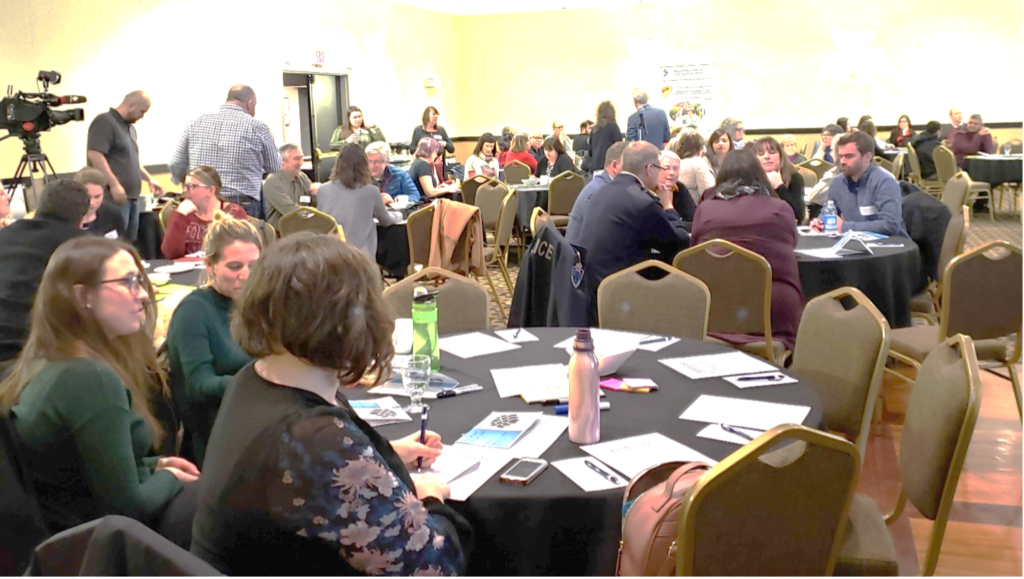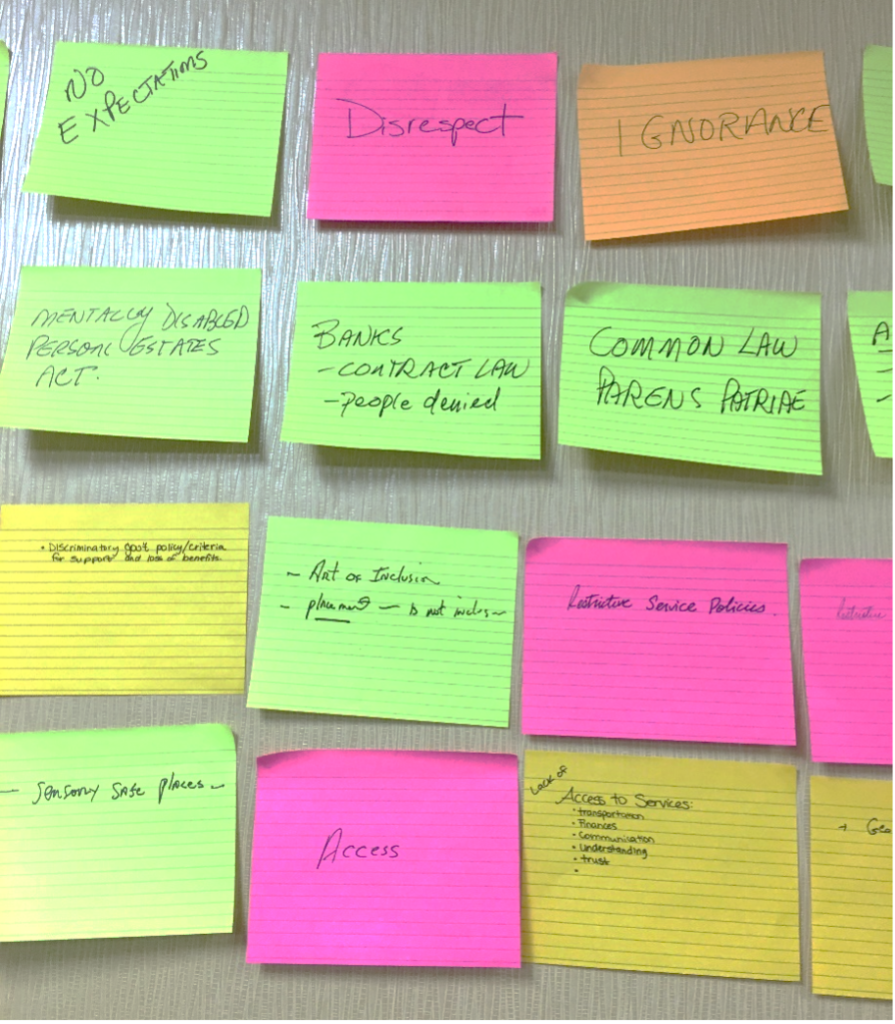Earlier this year we hosted community forums in Manitoba, Ontario and Newfoundland. These forums were dedicated to discussing legal capacity, decision-making, and the barriers that self-advocates, families, and professionals are experiencing. The forums also invited participants to create a vision of the future they would like to see and identify what needs to change to make this a reality.
These forums are part of a 2-year project that aims to develop practical solutions to legal capacity and decision-making in the areas of finance, health, and community supports and services for people with an intellectual, cognitive, psychosocial or mental health disabilities.
More than 360 people took part in the forums that were held across 10 communities. Participants included government officials, workers from non-governmental organizations, indigenous community representatives, private sector and service sector employees, and people with lived experience and their family members.

During these forums we had rich discussions and heard firsthand stories of the ways that people are having their decision-making right denied or dismissed. The most common barriers we heard were:
- Inconsistent Information
This included getting conflicting information about rules and policies from professionals like lawyer and bankers.
- Lack of Knowledge & Awareness
This included lack of knowledge about how to navigate service systems, and how to communicate with people with disabilities. It also involved lack of awareness about provincial legislation and legal obligations to support the capacity and decision-making of people with disabilities among both professionals and supporters.
- Concern Regarding Liability & Risk
This included professionals being fearful of liability issues, a perception that supporters are protective of individuals with a disability out of concern that they are at risk, and a tendency to default to use of guardianship when support for decision-making is required.
- Negative Stereotypes & Attitudes
This included professionals making assumptions about lack of capacity, treating individuals in a disrespectful manner, discriminating against individuals, being dismissive of concerns or not listening, behaving arrogantly, and making judgements based on disability. Negative attitudes based on culture were also discussed.
- Lack of Supports
This included shortages and constant changes in support workers who assist with access to the community and support with decision-making. It also involved the lack of culturally appropriate supports and culturally-informed decision-making approaches for new Canadians and indigenous peoples.
- System Rigidity
This included feelings that systems, policies and practices are inflexible and limit access and control. Time constraints limit professionals and supporters from dedicating the time needed to appropriately support decision-making, and there is a disconnection between services like the Office of the Public Trustee and the people they are responsible to support.
- Lack of Opportunity
This included lack of opportunity for self-advocates to practice making their own decision, failure to involve people with disabilities in decisions, and a tendency for others to impose their own values and speak / plan for the person with a disability rather than support / plan with the person. In some cases, this is reinforced by professionals who default to others to make decisions for the person with a disability.
- Lack of Trusting Relationships & Capacity for Advocacy
This included families being too overwhelmed by day-to-day needs to advocate for supported decision-making, or feeling that they cannot challenge professionals on issues of capacity and decision-making. For some people with disabilities, social isolation and having limited people in their lives whom they trust to support their decision-making, were also barriers.

Looking at these themes, forum participants also began suggesting possible solutions: training for professionals; training for individuals, families & support staff; education and awareness initiatives, knowledge tools, and community supports.
We’ve spent the summer months doing research and building on these discussions. This Fall we’ll be working with the pilot communities to develop and test practical tools ensure people with disabilities can exercise their right to legal capacity and supports for decision-making. We’re excited about this work and we’ll be sharing regular updates with you, so please stay tuned!
